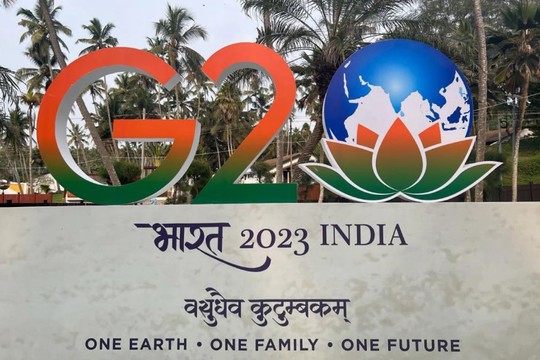The G7 countries have shown a determination to raise a disruptive chorus of condemnation against Russia at every international meet, as if the Ukraine conflict constitutes the centre of gravity of international relations around which all other problems must rotate, notes Kanval Sibal, a former Indian Foreign Secretary, India’s Ambassador to Turkey, Egypt, France and Russia. The behaviour of Western leaders in the G20 meetings held in India thus far could be described as, at best, disruptive.
Promises were made to India by major Western powers that they would help make India’s presidency of the G20 a success. “Success” would have meant finding a constructive way to bridge differences over Ukraine rather than insistence by the West on having its way. How can the G7 realistically expect Russia to help forge a consensus based on self-condemnation?
Some of those accusing Russia have themselves invaded sovereign countries and violated the UN Charter numerous times on grounds of human rights, democracy promotion or terrorism. This has been done without UN approval and in most cases without their own security being directly threatened. The G7 countries resist admitting that their arguments against Russia are measured by others against their own conduct not only in the past, but even today.
The panoply of sanctions against Russia without UN approval has no international legality. They are as much responsible for the disruption of supply chains of food, fuel and fertilisers as is the conflict between Russia and Ukraine, both these countries being major suppliers of these commodities globally.
To argue, as EU foreign and security policy chief Borrell has done again on the eve of the G20 Foreign Ministers’ meeting in New Delhi, that “Russia is lying about its role in causing food and fertiliser shortages,” is to gloss over EU’s own responsibility by denying access to its ports by Russian carriers and insurance cover by western companies, and part diversion of grains that were shipped out with UN’s intervention to some EU countries for alleged use as animal feed.
Much has been made by Borrell and other European leaders about ending all energy ties, indeed all economic ties, with Russia as a great strategic accomplishment.
Seeking to create a permanent breach with the EU’s largest and most powerful neighbour, rich with oil, gas and other raw materials, with centuries of political, security, intellectual and cultural ties with Europe suggests in fact a failure of strategy. Where to place the blowing up Nord Stream 1 and 2 pipelines and no effort at all to investigate what amounts to a terrorist attack against critical civilian infrastructure?
The decline of multilateralism, without which the present interdependent international system cannot work, is a matter of concern to the international community, to the point that the UN devoted its 75th anniversary UN General Assembly session to the revival of multilateralism.
The G20, without the veto handicapping its proceedings and a stable membership of the world’s biggest economies adequately distributed regionally, could forge a consensus on issues of financial stability and economic growth, which is its primary mandate. Bringing security issues into the discussions is an invitation to blockages even on those issues on which the members can agree. Why replicate the situation in the UN Security Council?
A pragmatic way out would be for the G20 to issue a joint communiqué on all issues on which they agree, seeing that at the G20 Foreign Ministers meeting there was.
The G20 was created to provide a platform to handle global financial and economic growth issues that the G7 could not handle adequately on its own and needed wider participation and coordination to develop policy options.
Between now and in September 2023 when the G20 summit is held the likelihood of tensions over Ukraine easing is much less than an exacerbation of the situation, especially if Russia makes gains. This forebodes ill for the prospect of any G20 summit level communiqué.
If the summit fails to issue one, it could well mean the effective political demise of the G20 as a forum, stresses Kanval Sibal.
And it so happened – no joint communiqué was issued.
read more in our Telegram-channel https://t.me/The_International_Affairs

 12:51 09.03.2023 •
12:51 09.03.2023 •























